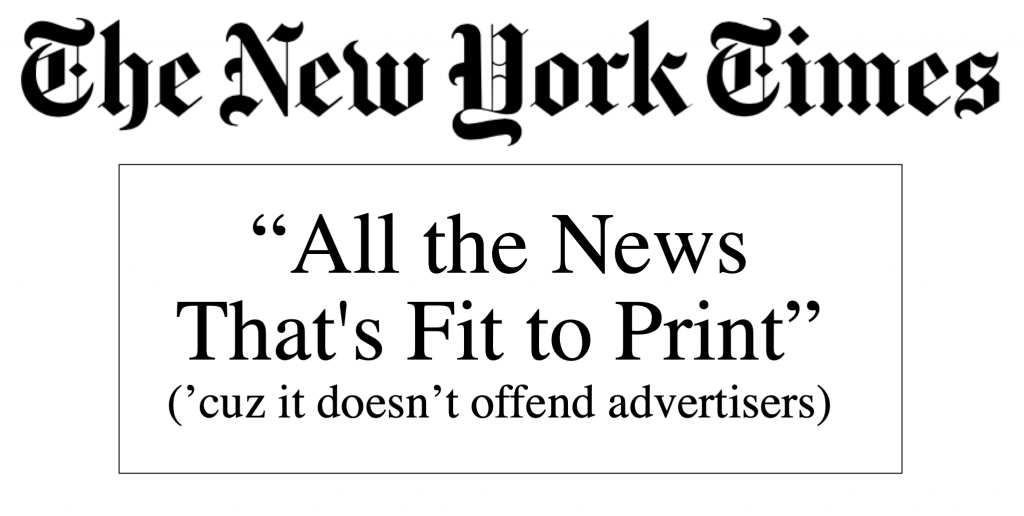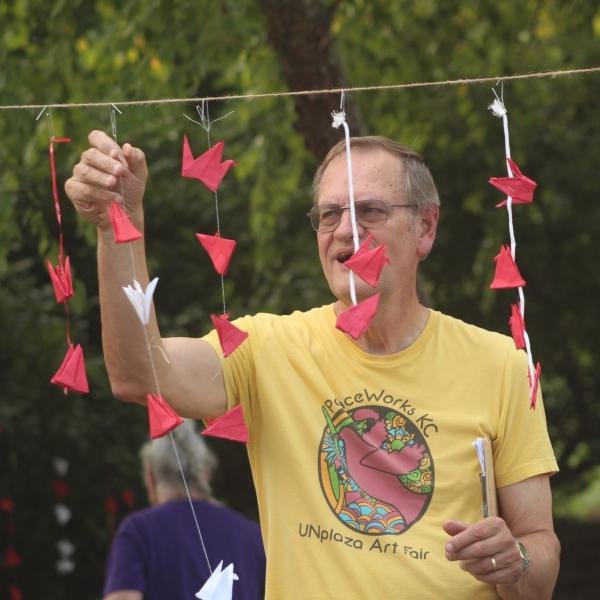by Spencer Graves
The New York Times discussed “The human toll of America’s air wars” on December 19.1 This is wonderful as far as it goes.
However, to paraphrase Greg Palast from a vaguely related context, The New York Times “only has the courage to shoot the wounded.”2
This comes months after the President of the US showed he has more guts than anyone in the five-sided fumble factory or the mainstream media in the US by ordering an end to the forever war in Afghanistan.3
The New York Times continues to grovel to US international business interests. Where are the reports that the top two recruiters for Islamic terrorism are Saudi Arabia and the US?4 Where are NYT reports of research published in 2008 showing that military action is by far the least effective response to terrorism, and between 1968 and 2006, terrorists were more likely to win than be defeated militarily, and that negotiations and law enforcement were far more effective?5 Where are NYT reports that everyone supports rule of law,6 but people with power think they should be above the law? Over 2500 years ago in ancient Athens, Anacharsis said, “Laws are like spider webs: Strong enough to hold the little flies but not the big ones.”7
In defense of The New York Times, if it had honestly identified the top recruiters for Islamic terrorism, it might have become unprofitable: Major advertisers may have taken their money elsewhere. And it may also have lost audience: No one wants to believe that their baby is ugly. No one wants to believe that the government supported by their tax money includes the biggest criminal protection racket in human history.8
The NYT supported rule of force over law by only tepidly reporting the requests from the government of Afghanistan in late September 2001 for evidence before Afghan officials would consider extraditing Osama bin Laden. Even after Saudi involvement in the preparations for the September 11 attacks was clearly established in US government documents declassified in 2016, the NYT failed to prominently report that.9
This recent exposé on “The human toll of America’s air wars” comes after the NYT was silent on the persecution of several others with more commitment to rule of law, freedom, democracy, liberty and justice for all than either Joe Biden or the NYT. Examples:
-
Julian Assange spent 2012-2019 in the Ecuadorian Embassy in London before being turned over to the legal authorities in the UK in preparation for extradition to the US to stand trial for publishing information that the NYT should, in my judgment, have published long ago.10
-
Bradley / Chelsea Manning spent 2010-2017 incarcerated for disclosing documentation of US government operations similar to what the NYT recently published — information classified to keep it from the American public, NOT from any foreign enemy.11
-
Similarly, Dan Hale is currently serving time for essentially the same crime.12
-
And Ed Snowden is in exile for similarly trying to inform the US public of crimes committed by administration authorities.13
-
Dan Ellsberg had no defense for leaking the “Pentagon Papers”, apparently because no judge in the US can question a claim of national security by an administration official, per the US Supreme Court decision in US v. Reynolds (1953).14 The “checks and balances” allegedly built into the US Constitution are routinely broken by claims of “executive privilege” or reference to US v. Reynolds, to benefit people with power at the expense, evidently, of national security and the poor and middle class everywhere.
Are the US public and the US Congress the leading enemies of the US?15 The NYT continues to demonstrate their tepid commitment to democracy, liberty and justice for all. If you think otherwise, I want to see your evidence.
2022-01-02
CAVEAT: This is the opinion of the author and is not an official position of PeaceWorks Kansas City.
Spencer Graves is a Vietnam-era veteran, licensed as a Professional Engineer in Missouri (# 015720) with a PhD in statistics, and is secretary of the Board of PeaceWorks Kansas City.
©2021 Spencer Graves, Creative Commons Attribution Share-Alike 4.0 International License.
1 Azmat Khan (2021-12-19) “The Human Toll of America’s Air Wars“, New York Times (https://www.nytimes.com/2021/12/19/magazine/victims-airstrikes-middle-east-civilians.html).
2 The Frontline series on PBS aired “The Spill” in 2010 discussing the Deepwater Horizon oil spill. They reported that BP has neglected warnings about oil safety for years, but the rest of the industry was fine. Greg Palast (2010-10-27) said, “The Petroleum Broadcast System Owes Us an Apology“ (https://www.gregpalast.com/the-petroleum-broadcast-systemowes-us-an-apology).
3 Since President Biden forced the US military to withdraw from Afghanistan, he’s been blamed for their failure to develop an honest disengagement plan. They reportedly believing they could talk him out of it, as they reportedly had his three predecessors.
4 e.g., Wikiverisity, “Winning the War on Terror” (https://en.wikiversity.org/wiki/Winning_the_War_on_Terror).
5 Seth Jones and Martin C. Libicki (2008), How Terrorist Groups End: Lessons for Countering al Qa’ida, RAND Corporation (https://www.rand.org/pubs/monographs/MG741-1.html). Cited in Wikiversity, “Winning the War on Terror”.
6 e.g., research by Tom R. Tyler and Yuen J. Huo (2002). Trust in the Law: Encouraging Public Cooperation with the Police and Courts (Russell Sage Foundation). US Special Forces Lt. Col. (ret.) D. Scott Mann claims that special forces units living with and protecting rural Afghan villages were winning the support of the locals. That program might have won the war in Afghanistan if it had been expanded to meet the need, according to D. Scott Mann (2015) Game Changers: Going local to defeat violent extremists (Tribal Analysis Center). This is discussed further in the Wikiversity article on “Winning the War on Terror”.
7 Wikiquote, “Anacharsis” (https://en.wikiquote.org/wiki/Anacharsis).
8 You don’t have to be perfect to succeed at anything: You only have to be better than the alternatives. As a superpower the US arguably replaced the UK. In the nineteenth century Queen Victoria was arguably the biggest drug lord in human history: Her government won two “Opium Wars” to prevent the government of China from outlawing opium. Her merchants were making too much money from selling opium to Chinese to allow that to happen. Is there any other drug lord in human history with more success than that?
9 e.g., research by Tom R. Tyler and Yuen J. Huo (2002). Trust in the Law: Encouraging Public Cooperation with the Police and Courts (Russell Sage Foundation). The government of Afghanistan offered to consider extraditing Osama bin Laden, but they wanted evidence. US government documents declassified in 2016 suggests that a major reason the US did NOT provide evidence was because they evidence they had documented the involvement of the Saudi ambassador to the US and employees of the Saudi embassy and consulates in the US in the preparation for the suicide mass murders of September 11, 2001, as documented, e.g., in the Wikiversity article on “Winning the War on Terror”.
10 Wikipedia, “Julian Assange” (https://en.wikipedia.org/wiki/Julian_Assange).
11 Wikipedia “Chelsea Manning” (https://en.wikipedia.org/wiki/Chelsea_Manning).
12 Wikipedia, “Daniel Hale” (https://en.wikipedia.org/wiki/Daniel_Hale).
13 Wikipedia, “Edward Snowden” (https://en.wikipedia.org/wiki/Edward_Snowden).
14 Wikipedia, “United States v. Reynolds” (1953) (https://en.wikipedia.org/wiki/United_States_v._Reynolds).
15 One of the most egregious cases I know of official persecution involves Richard Barlow, who was fired from intelligence positions in the Reagan and G. H. W. Bush administrations for telling his managers they should not lie to Congress[https://en.wikipedia.org/wiki/Richard_Barlow_(intelligence_analyst)].


